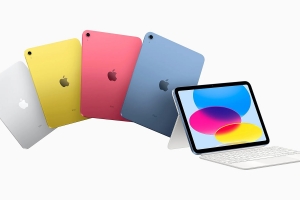Hello and welcome back to the Skills 360 podcast. I’m your host, Tim Simmons, and today, I want to talk about how to make sure you get a great year-end bonus.
When I say “bonus,” I’m not talking about a Christmas card from the boss with a $20 gift certificate for Starbucks. I’m not talking about tokens of appreciation. I’m talking about a nice fat year-end bonus that says your employer believes you’re worth investing in.
In our last lesson, I talked about how to demonstrate your value through your approach to work. Today, I want to focus not just on your approach, but on the work itself. When all is said and done, it’s your performance that will be valued above all else. So, how can you show that?
Think about what evidence you can provide that demonstrates you’re a top performer. This is exactly what your employer is mulling over. Not just whether you showed up or not, but what you actually accomplished. And remember, as I said last time, December is too late to start thinking about this. You need to perform all year.
Good performance often comes down to strategic focus. You need to look carefully at how you spend your time, and the impact of your different work activities. A good place to look for guidance on this is your past performance reviews. What did your manager ask you to focus on? Where did you have room for improvement?
After all, it’s not just about what you did but about your potential. And showing that you have potential means showing that you can learn and improve. If, on the other hand, you didn’t improve in the areas that were identified, then you are demonstrating a lack of learning and potential.
There are two other things you should be thinking about: the bottom line and company strategy. The bottom line might seem obvious, but a lot of people fail to clearly articulate how their work contributed to the company’s ultimate purpose: making money.
This might involve saving the company money, such as by cutting costs. Or it can mean increasing revenues. And you don’t have to be a salesperson to demonstrate a connection to profits. Whether you’re in marketing, HR, finance, or logistics, your department has surely impacted the bottom line. And you’re allowed to take partial credit for the contributions of your team or your department.
Of course, making money is the result of strategic decisions and planning. And you can demonstrate your value by showing how your work relates to strategy. For example, if you worked on a major policy overhaul, you might not think you’ve impacted the bottom line. But if that policy overhaul was part of a new corporate strategy to focus on diversity and equity, then you’re helping move the company forward. And that kind of long-term benefit is something you should be proud to have contributed to. And the company would be smart to reward you for it.
Notice I said “contribute to.” When you’re trying to demonstrate your value, it’s not just about individual accomplishments. I talked about the importance of being a team player last time. That’s because a lot of achievements are group achievements. And playing a part in a group achievement is an important part of your performance, one that you should be sure to include when you report your accomplishments.
And reporting your accomplishments is necessary! Nobody likes someone who toots their own horn too much, but you can’t expect your employer to know everything that you’ve accomplished unless you tell them. You need to advocate for yourself. Flying under the radar doesn’t work. Every company has staff who are growing resentful because they put their nose to the grindstone, but nobody recognizes it, or rewards it.
But again, don’t wait until December to say “look what I did!” You should be meeting with your boss early and often. How else will you know how to meet your employer’s expectations? In fact, I’ve saved my most important tip for last. Do you really want to know how to get a good bonus? Well, try asking exactly that question to your boss. Eliminate the guesswork. Just have a straight-up conversation about what it takes to get a bonus.
So there you have it. I hope you can see how you should be thinking about your performance all year. Not only thinking about it, actually, but talking about it, asking your boss about it, demonstrating it. And remember to include group achievements when you talk about the great things you’ve done, and if you can, connect those achievements to the bottom line and to company strategy.
That’s all for today. So long. And happy learning.















